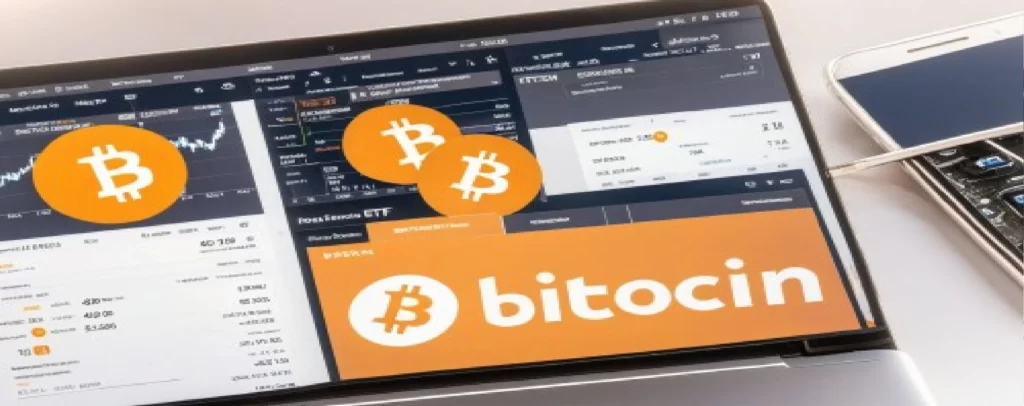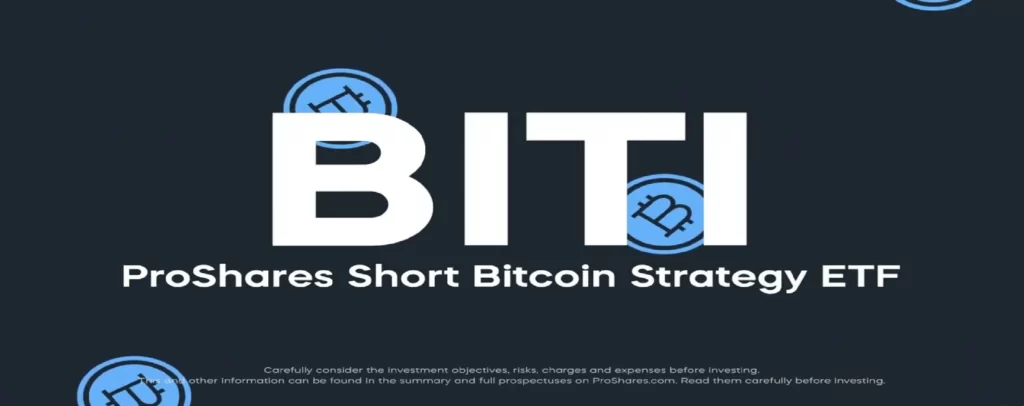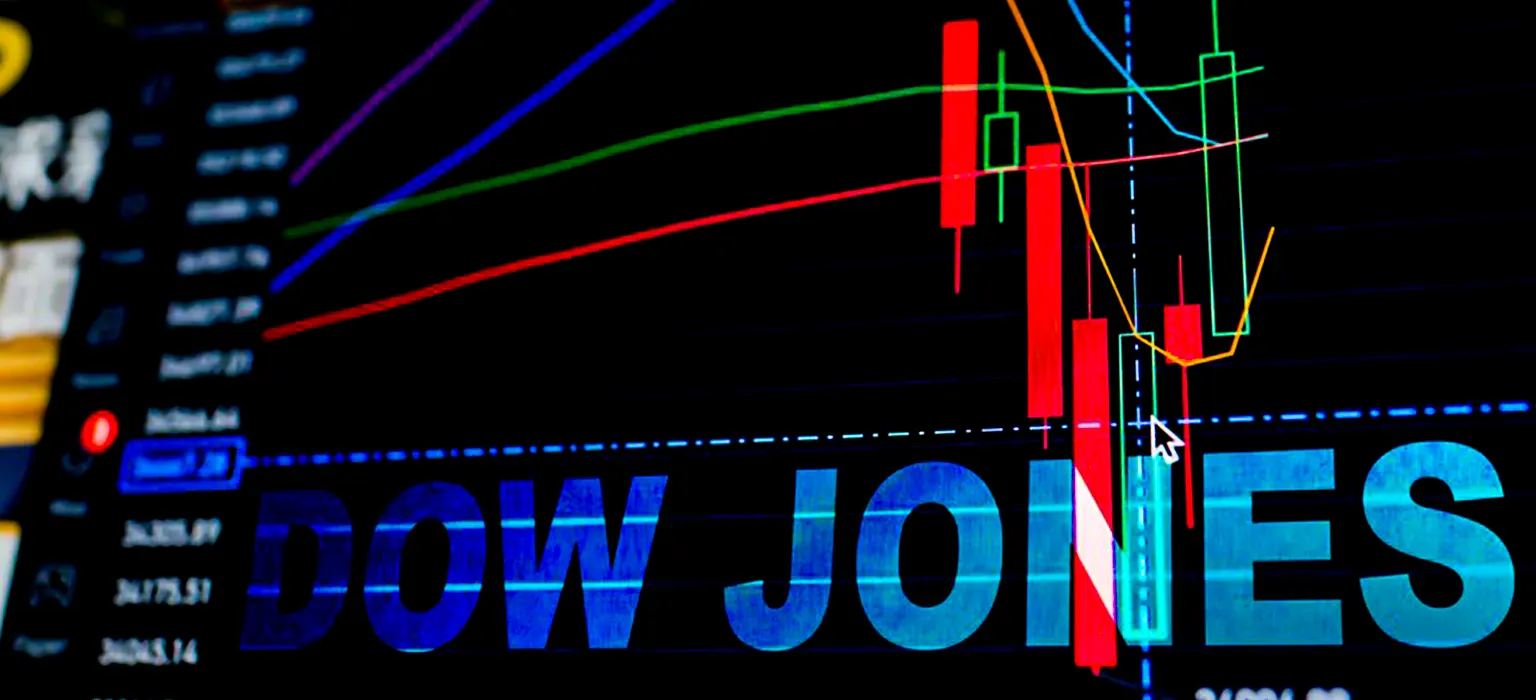Will 2024 Be the Year of the Bitcoin ETF?

Exchange-traded funds (ETFs) that track the bitcoin price were authorized by the U.S. Securities and Exchange Commission (SEC) on Wednesday, a move that marked a main turning point for the cryptocurrency market. It is a turning point in the development of such items, following more than ten years of trying.
Since 2013, several asset managers have applied for and been denied approval for bitcoin exchange-traded funds (ETFs) by the SEC due to worries about the potential for market manipulation. But in August, a judge overturned the SEC’s decision to deny Grayscale Investments’ application to create a bitcoin ETF, forcing the agency to change its mind. With this development, 2024 may be the year the Bitcoin ETF finally launches.
What is a Bitcoin ETF?

On January 10, 2024, the SEC will have to decide on the approval of bitcoin ETFs from companies such as Fidelity, BlackRock, and others. These products would allow investors to get exposure to the largest cryptocurrency without the need to buy it directly.
How Will The ETFS Work?
They are going to be listed on the CBOE, NYSE, and Nasdaq. Physical bitcoin acquired from cryptocurrency exchanges and stored with custodians such as Coinbase Global (COIN.O) will make up their assets.
The goods follow a baseline set by Bitcoin. Some follow an index that collects trading data from several Bitcoin-USD markets run by major cryptocurrency exchanges and is supplied by CF Benchmarks, a division of the cryptocurrency exchange Kraken.
What is a spot bitcoin ETF?

A financial instrument that can invest directly in Bitcoin instead of in its futures contracts is a spot Bitcoin exchange-traded fund (ETF).
By doing this, investors would no longer be required to use derivative contracts to gain exposure to bitcoins directly. Therefore, real bitcoins would be owned by a spot ETF, increasing transparency in cryptocurrency transactions and, obviously price stability.
How to buy Bitcoin ETF?
To buy Bitcoin ETFs, investors can easily buy and sell shares through their existing brokerage accounts, providing a very simple process than buying Bitcoin directly on exchanges.
New Bitcoin ETFs and Exchanges:
Eleven new Bitcoin ETFs, each traded on a separate market, got approval from the SEC. ARK 21Shares Bitcoin ETF (ARKB), Invesco Galaxy Bitcoin ETF (BTCO), and others on Cboe BZX; iShares Bitcoin Trust (IBIT) and Valkyrie Bitcoin Fund (BRRR) on Nasdaq; and Grayscale Bitcoin Trust (GBTC), Bitwise Bitcoin ETF (BITB), and Hashdex Bitcoin ETF on NYSE Arca are important listings.
Trading Bitcoin ETFs:
Trading Bitcoin ETFs is more user-friendly than buying Bitcoin directly. Investors can trade these ETFs through their standard brokerage accounts, stopping the need for complex wallet management and cryptographic keys associated with direct Bitcoin ownership.
Fees Involved:
While trading in ETFs incurs fees, because of increased competition among providers has led to lower fees and waivers for starting months. Bitwise, VanEck, ARK Invest, and BlackRock offer ETFs with management fees varying from 0.20% to 0.25%, and early investors may benefit from fee releases for the first few months.
Best Bitcoin ETF
The U.S. Securities and Exchange Commission authorized many spot bitcoin ETFs from various providers, including VanEck, WisdomTree, and BlackRock, as of January 10. Since these ETFs are always relatively new, more details about their performance and liquidity will become available before they are in the following rankings.
1.ProShares Bitcoin Strategy ETF (BITO)

The ProShares Bitcoin Strategy ETF (BITO) made history such as the first bitcoin futures ETF on a main U.S. exchange, establishing in 2021 during the bull market. With $1.7 billion in total assets and a 0.95% expense ratio, it’s among the largest funds in its category, drawing a record $1.1 billion in its first two days. Pros have being one of the oldest and highest-volume funds, and closely tracking bitcoin returns. However, the 1% fee poses a premium for exposure, and, like all ETFs, it doesn’t allow exploitation of Bitcoin’s “no counterparty risk” feature.
2. The ProShares Short Bitcoin Strategy ETF

The ProShares Short Bitcoin Strategy ETF (BITI) mirrors the ProShares Bitcoin Strategy ETF but presents daily inverse exposure to Bitcoin. As the only U.S. ETF providing short exposure to the S&P CME Bitcoin Futures Index, it profits when bitcoin depreciates.
- With total assets at $58.5 million and a 0.95% expense ratio, it’s relatively large in its category.
- It offers daily inverse exposure and allows negative views on Bitcoin, but caution is advised due to Bitcoin’s volatility.
- The 0.95% fee is a downside, and holding for extended periods may lead to unexpected behavior.
3. The VanEck Bitcoin Strategy ETF

Launched during the bull market’s peak, the VanEck Bitcoin Strategy ETF (XBTF) has quickly become a famous ETF with $54.4 million in total assets and a 0.76% expense ratio. Structured as a C corp.
- It offers tax benefits for investors and provides exposure to bitcoin via futures contracts with high-quality collateral.
- It includes lower fees, a C corp. structure, and is one of the larger funds in its category.
- However, the C corp. structure may cause performance lag during increasing bitcoin prices, and it has smaller assets under management approximated to BITO, along with lower liquidity.
4. Valkyrie Bitcoin Strategy ETF (BTF)
Launched in 2021 during the cryptocurrency market surge, Valkyrie Bitcoin Strategy ETF (BTF) has net assets of $34.5 million.
- With an expenditure ratio of 1.2%, the fund primarily distributes its net assets to bitcoin futures contracts.
- And it offers dual exposure to bitcoin and ether futures, Valkyrie is an energetically managed fund.
- However, the higher expense ratio, possible tracking error due to bitcoin and ether futures, and a bid-ask spread of 0.13% make it fairly costly compared to other choices.
5. The Global X Blockchain and Bitcoin Strategy ETF (BITS)
The Global X Blockchain and Bitcoin Strategy ETF (BITS) is a combination of exposure to bitcoin futures contracts with holdings in blockchain companies.
- With total assets at $25.4 million and a 0.65% expense ratio, BITS invests in its sister ETF, the Global X Blockchain ETF (BKCH), forming nearly 50% of its holdings.
- This amazing approach provides exposure to both bitcoin futures prices and returns from publicly traded crypto ecosystem companies. While offering very lower fees than other bitcoin ETFs, investors should be careful about possible underperformance if BKCH lags the market.
- BITS is less a straightforward bitcoin investment and more a diversified play in the wider crypto space, needing thorough due diligence on underlying stocks via BKCH.
Conclusion
The bitcoin ETF space is rapidly growing with the new spot bitcoin ETFs, which will reshape the market especially. However, investors have trustworthy alternatives in the current futures-based ETFs until these competitors confirm a strong track record and competitors begin to level out.
The ProShares Bitcoin Strategy ETF (BITO) is the best option in the current situation. Among its competitors, BITO has the longest track record, and it offers investors with a longer background for analyzing its management and performance. In addition, the ETF has good bid-ask spaces and strong trading volume, guaranteeing investors of smooth transactions.



